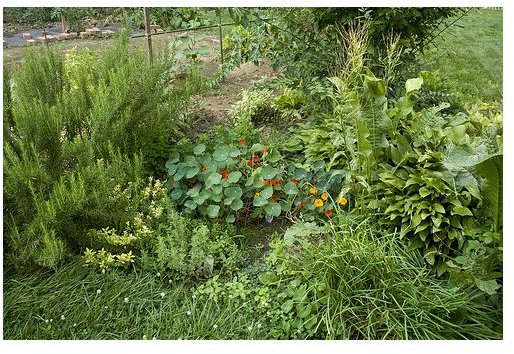Growing an Organic Herb Garden: Find Useful Tips On Herb Gardening
The Importance of Herbs
Herbs are generally known for their medicinal and culinary uses. History has witnessed many nations growing herbs for a variety of reasons. Herbs were known to ancient Indians and Chinese for their medicinal and curative properties. Even the Greeks appreciated the significance of herbs, and used them extensively in their medical field. Herbs are also used to add aroma to many European and Asian cuisines.
The practice of herb gardening has been popular since medieval times. But a few decades ago, homemade organic herb gardening lost its importance. Herbal stores dominated the market by selling expensive herbs. Today, the practice of herb gardening has made a comeback. This revival has encouraged many people to try their hand on growing cheap and simple organic herb gardens. Growing your own herb garden using home-made composts and free organic seeds is cheaper than purchasing them from your local nature store.
Choosing Herbs for Your Organic Herb Garden
If you are planning to grow an organic herb garden exclusively for medicinal purposes, consider herbs like ginger, thyme, chamomile and aloe vera for your garden. You will find lots of herb seeds for your culinary requirements including bay leaves, mint, parsley, oregano, chives, and basil. Some gardeners prefer eye-catching and attractive herb gardens. Attractive herbs such as evening primrose, sage, lavender, and lemon balm are the most attractive choices among organic gardeners.
Basic Herb Garden Tips
Proper planning is an essential part of growing a healthy garden. You need to first determine the space for your garden. There are some good books that can give you detailed information on this subject. Some gardeners prefer growing herbs in containers due to less space. If you have a limited space, try to use containers or planters for growing herbs. Always ensure your herbs receive plenty of sunlight each day. Some herbs require sunlight at least 5-6 hours each day.
Here are some more tips to create an eco-friendly herb garden:
-
Use organically grown seeds. You can refer to the how to get free seeds article to know more about acquiring organic seeds for your herb gardens.
-
The soil in your garden must be fed with home-made compost made from raw vegetable and fruit peels, cardboard, junkmail and other waste materials. Creating homemade composts can save money spent on soil conditioners and fertilizers.
-
Prepare mulch using grass clippings and other materials. It keeps the soil moist and saves on watering.
-
Sow seeds of flowers like fennel, calendula and egg plant to attract beneficial insects such as ladybirds and hoverflies. This is one of the most natural ways to control pests.
-
Have a pH check for your soil. This will help you to determine whether the soil composition is suitable for herb gardening. There are many soil testing tools available in the market.
Those were few tips to create a perfect organic herb garden. You can learn more about organic gardening tips, tricks and how-tos in Brighthub’s Green Living channel.
References
https://www.gardenorganic.org.uk/organicgardening/intro.php
